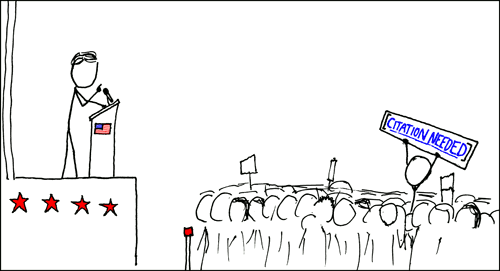Wednesday, April 17th, 2019 (
No comments yet)
It certainly appears that way. There's almost no content at http://www.igotmyidentitystolen.com/, just ads and links to Lifelock.com.
If it really is a front-site, then Lifelock's advertising campaign is even more aggressive than I thought! I already knew they advertise heavily on websites, but I've seen comments and reviews on many websites that read more like planted ads than actual reviews.
Case-in-point, some guy that left a nice long comment complaining about my views on fraud alerts who's website has another giant ad for Lifelock that's supposed to be a "review", but with all the ads, it's hard to believe that he's impartial.
Tags:
Identity Theft,
Lifelock,
Scams - Ripoffs - Dirty Tricks
Wednesday, April 17th, 2019 (
No comments yet)
No offense to the UK, but they've not got the best history when it comes to personal privacy. That's why when I heard that the recent call to create a national DNA registry has been rejected, I was pleasantly surprised!
Of course, they still have their problems. The existing DNA registry is filled with data from criminals, but also people who were only suspects. Obviously criminals should have a reduced set of privacy rights, but people who have never been convicted is another story entirely. Still, props to the UK for having the brains to reject such a flagrant rights violation.
Tags:
DNA,
UK
Wednesday, April 17th, 2019 (
No comments yet)
A judge just ruled against the RIAA's theory of "making available". What this means is that the RIAA can't pursue a lawsuit solely on the fact that someone has a song available for download, but that someone actually downloaded it from them.
This one ruling could derail future (and past?) RIAA lawsuits and make filesharing a whole lot safer for the masses. Interestingly enough, the judge also helpfully offered the defendant a bunch of other possible defences that they could have used which the judge (presumably) would have ruled in their favor with.
Tags:
Customer Abuse,
RIAA
Wednesday, April 17th, 2019 (
No comments yet)
Lifehacker has an interesting article about managing your online reputation. They talk about how to tell when new information about you surfaces (setting up a Google alert) and how to amend or respond to negative information. There are also ways to artifically improve the way you're viewed online (your own blog).
It's a good read for anyone who's concerned about what people will find when searching for your name online.
Tags:
Reputation Management
Tuesday, April 16th, 2019 (
No comments yet)
Tuesday, April 16th, 2019 (
No comments yet)
Because of fears of data sharing, data loss, and inappropriate disclosure, people are circumventing their doctors and insurance companies when getting DNA tests. Smart people.
Can and would they use your DNA results against you? Do credit card companies raise your rates according to unrelated things on your credit report? Do insurance companies raise your rates due to traffic tickets that have little to do with telling how good or safe a driver you are?
Like I said, avoiding a record of your DNA is a smart idea.
Tags:
Customer Abuse,
DNA,
HIPAA,
Hospitals,
Insurance
Tuesday, April 16th, 2019 (
No comments yet)
According to an Associate Press article, it's quite common for employees to snoop through customers' personal data.

Vast computer databases give curious employees the ability to look up sensitive information on people with the click of a mouse. The WE Energies database includes credit and banking information, payment histories, Social Security numbers, addresses, phone numbers, and energy usage. In some cases, it even includes income and medical information.
Experts say some companies do little to stop such abuses even though they could lead to identity theft, stalking and other privacy invasions. And companies that uncover violations can keep them quiet because in many cases it is not illegal to snoop, only to use the data for crimes.

But of course, if they didn't store all that necessary data, this would be far less of an issue.
Tags:
Data Brokering
Tuesday, April 16th, 2019 (
No comments yet)
Congress sticks their noses into a lot of things they shouldn't and not where they should. They are corrupt, inept, and won't do much to protect Americans unless it will make a positive affect on their careers or bank accounts.
Now they're looking at cyberbullying and it's hard to say if that's a good thing or not. Given their history, chances are that it's not.
Tags:
Congress,
Cyberbullying,
Families
Tuesday, April 16th, 2019 (
No comments yet)
I…. I just don't have the strength to explain why this is a bad idea today. "Do no evil". Yeah… ok. You forgot about, don't do something that will make it easy for evil people to do evil, but I guess that wouldn't look as good as a company motto.
Oh, but don't worry! Your data will be protected by your Google account password! I feel better already…
Tags:
Google,
HIPAA
Tuesday, April 16th, 2019 (
No comments yet)
Data breaches are common, but shouldn't be. They could easily stem the flow by putting better security in place, taking personal data offline, stop sending employees home with laptops that have personal data on them, and, above all stop storing our data once you no longer have need of it (you can't lose my credit card number if you don't have it).
Anyway, class action suits don't often work so one man decided to take a company to small claims court instead (and won!). A $700 settlement might not seem like much, but as he says:

...it was likely more than most consumers who filed class-action lawsuits ever received (after attorney fees are paid) and it would be received much more quickly.

Tags:
Data Breaches,
Data Brokering,
Small Claims Court












 Vast computer databases give curious employees the ability to look up sensitive information on people with the click of a mouse. The WE Energies database includes credit and banking information, payment histories, Social Security numbers, addresses, phone numbers, and energy usage. In some cases, it even includes income and medical information.
Experts say some companies do little to stop such abuses even though they could lead to identity theft, stalking and other privacy invasions. And companies that uncover violations can keep them quiet because in many cases it is not illegal to snoop, only to use the data for crimes.
Vast computer databases give curious employees the ability to look up sensitive information on people with the click of a mouse. The WE Energies database includes credit and banking information, payment histories, Social Security numbers, addresses, phone numbers, and energy usage. In some cases, it even includes income and medical information.
Experts say some companies do little to stop such abuses even though they could lead to identity theft, stalking and other privacy invasions. And companies that uncover violations can keep them quiet because in many cases it is not illegal to snoop, only to use the data for crimes.

